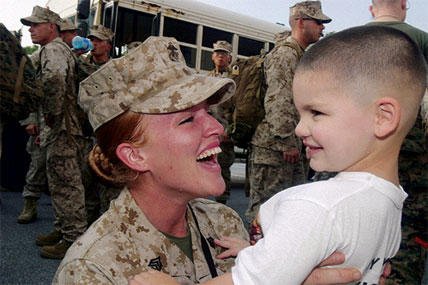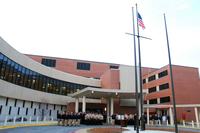Staying involved in a child’s education is a juggling act for any parent. But as a military mom or dad who is also frequently handling the pressing demands of moving or coping with a lengthy deployment, making sure that your children are being successful in school can be a full-time job.
Here are a few ways to keep from feeling run over by schools’ varying policies, procedures and general way of doing things.
Plan way ahead. As a military parent -- even more than nonmilitary parents -- you should think and plan well in advance for moves, deployments, changes in caregiver arrangements and any other events that might disrupt your children’s schooling.
As soon as you learn you will likely be transferring to a new base and community, research the schools in the area, call ahead and ask about opportunities to visit before your children’s first day and even ask for a contact person in case of questions.
It’s also wise to let your children’s current teachers know a move is in the works. They can identify areas where your children might need some extra help.
Get a free guidebook. The Military Family’s Parent Guide for Supporting Your Child in School is a valuable resource from the University of Southern California’s “Building Capacity in Military-Connected Schools” project.
For a limited time, Teachers College Press, which co-published the book with the Military Child Education Coalition, is giving the books away for free. Click on this link to request a copy.
This guidebook provides information on how transition and other military-related events affect children in school and offers practical suggestions for working in partnership with educators to keep students from falling behind.
Tell educators about books for them (they’re also free). The Building Capacity team also wrote three other guidebooks -- one for teachers, one for school administrators and one for pupil personnel, such as school social workers, counselors and psychologists.
The books educate each of these audiences on the needs of military students and how they can create schools that are more supportive of military children and families. They can click on the same link to request a free copy.
Tell the school what you need. It would be great if the staff at every school was aware of and sensitive to the unpredictable lifestyles of military families, but of course this isn’t the case.
You shouldn’t be afraid to seek compromises or ask for special homework or attendance arrangements when a deployment or block leave takes place in the middle of the school year.
You should also speak up if you think your children are struggling to make friends, having trouble in a certain subject or need some accelerated work, especially if another move is imminent.
The chances are that the teachers will appreciate the information and work with you to address your concerns.
Your family may not be part of a school community for as long as nonmilitary families. But heading off transition- and deployment-related problems for children before they occur not only helps your children, but also helps the schools they attend.
-- Linda Jacobson is an editor/writer for the USC School of Social Work -- Building Capacity in Military-Connected Schools.






















